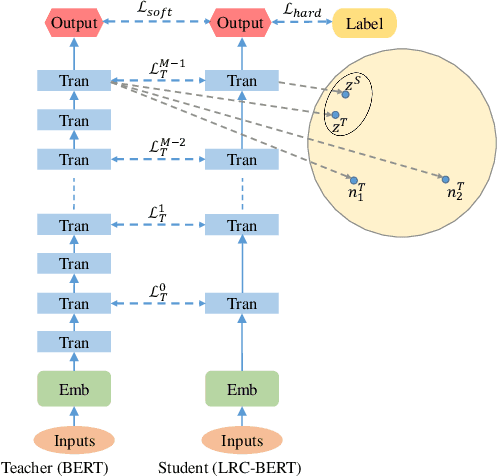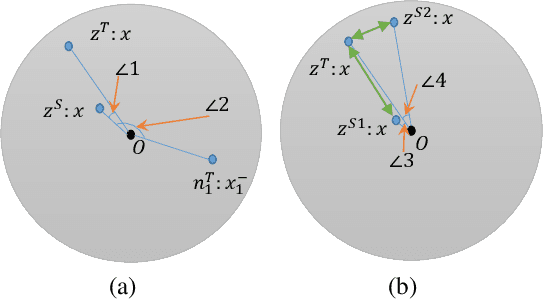LRC-BERT: Latent-representation Contrastive Knowledge Distillation for Natural Language Understanding
Paper and Code
Dec 14, 2020



The pre-training models such as BERT have achieved great results in various natural language processing problems. However, a large number of parameters need significant amounts of memory and the consumption of inference time, which makes it difficult to deploy them on edge devices. In this work, we propose a knowledge distillation method LRC-BERT based on contrastive learning to fit the output of the intermediate layer from the angular distance aspect, which is not considered by the existing distillation methods. Furthermore, we introduce a gradient perturbation-based training architecture in the training phase to increase the robustness of LRC-BERT, which is the first attempt in knowledge distillation. Additionally, in order to better capture the distribution characteristics of the intermediate layer, we design a two-stage training method for the total distillation loss. Finally, by verifying 8 datasets on the General Language Understanding Evaluation (GLUE) benchmark, the performance of the proposed LRC-BERT exceeds the existing state-of-the-art methods, which proves the effectiveness of our method.
 Add to Chrome
Add to Chrome Add to Firefox
Add to Firefox Add to Edge
Add to Edge